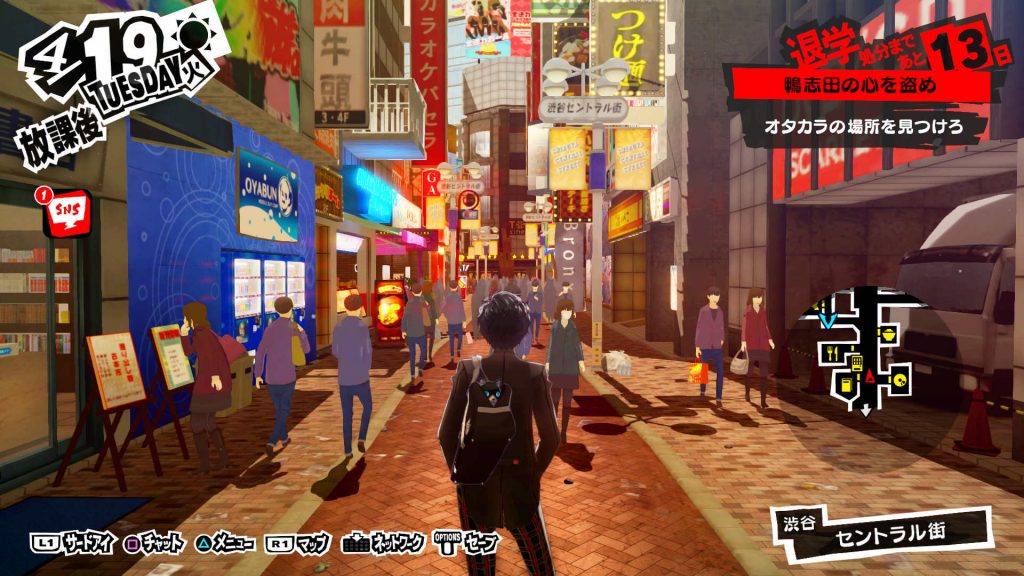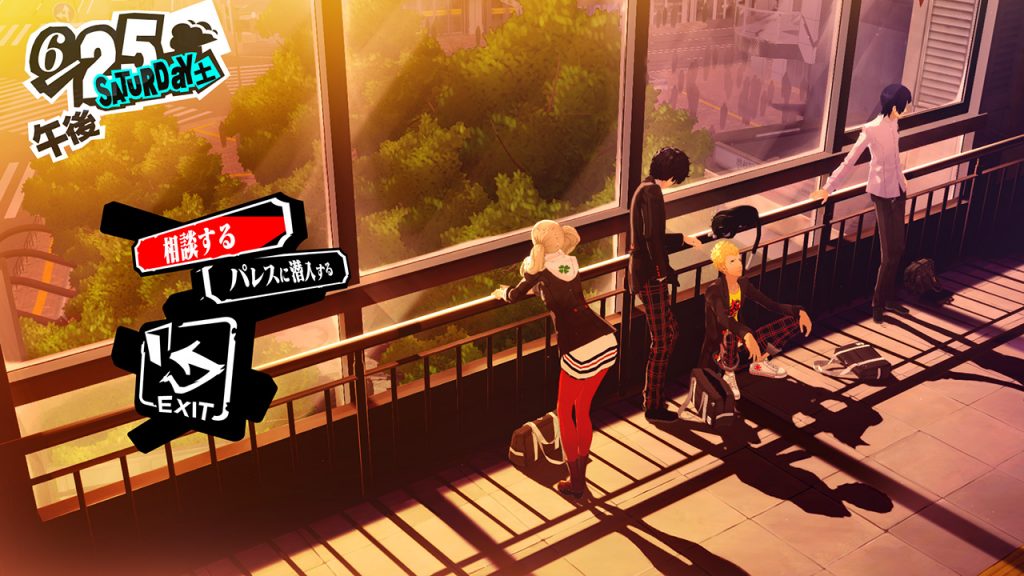In the typical RPG, your relationship with money tends to follow a certain trajectory. Regardless of social status, you usually start out broke. By the end of the game, you will probably end up with more money than you can spend. For the most part, you barely need to put much effort in amassing money, and you will likely become rich simply by killing every hapless monster that shambles into your path.
This is because, when it comes to the question of income, developers long ago found their default catch-all method for gaining in-game riches: corpse robbery.
Let’s put aside the riddle of why a random slime beast would even be carrying a thousand yen in the first place, and instead take a closer look at this issue in the context of two recently released RPGs: Final Fantasy XV and Persona 5.
The questionable relationship between social status and money.
In Final Fantasy XV, you play as the prince of the most technologically advanced nation on the planet. Yet at the onset of your journey, you and your retinue are inexplicably broke, so much so that your crew resorts to monster hunting in order to pay off the repair bills for your luxury car.
I am far from the first person to point out the sheer strangeness of this development. After all, at this point in the story, Prince Noctis’ kingdom is still thriving. In the opening cutscene, his own father, the King, personally sends him off. Why does the crown prince have no money? Why are monster hunts his only source of income?

The protagonist of Persona 5 dropping money left and right in the Shibuya district.
Let’s contrast this with Persona 5, a game told from the perspective of a teenaged boy whose story begins much less glamorously than that of a prince. In the first few hours of the game, he arrives in Tokyo virtually penniless. He has a criminal record looming over him, which the adults in his life are quick to remind him of. His temporary caretaker places him in the shoddy attic of a small restaurant and initially provides him with little assistance.
Yet despite these apparent setbacks, his criminal record in no way impedes him from getting any part-time job he wants. Regarding in-game resource management, finances prove no real obstacle after a certain point, largely because killing shadows nets the protagonist all the money he could ever need This is especially jarring when contrasted to the dialogue of his teammates, who often complain about how little money they have. One team member is so poor that he can barely even afford his train fare. Meanwhile, the protagonist is rolling in cash.
Throughout my playthrough of Persona 5, moments like these inevitably created a sense of dissonance. It felt as though the game mechanics created a sort of contradiction: the story required me to be poor but the gameplay allowed me to make money faster than I could spend it.
Social status should affect how you play the game.
If your character is a one-percenter, then you should feel the impact of your financial and social privileges. Even if your pockets aren’t overflowing with cash at the very beginning, it should be easy for you to obtain it. Your wealth, status, and how you choose to present yourself should color all of your interactions, especially among common citizens. You should be encouraged to spend lavishly throughout the game, and accepting or rejecting that temptation should have some bearing on your playthrough.
If your character is someone of more humble origins, then your financial burden should manifest itself in some way. Saving money, and managing resources in general, should continue to be at least a moderate struggle throughout the game’s entire length. Instead of buying goods outright, you might be forced to regularly haggle with merchants or to offer your monster-slaying services in exchange for free or heavily discounted items.
To be clear: I am not so unreasonable as to demand that every single RPG developer take social status into account when crafting their reward system. For instance, if a game takes place in an alien setting that lacks any recognizable social hierarchy, then of course the developers shouldn’t feel beholden to the norms of our world.
Moreover, I fully agree with the sentiment that video games are a form of escapism. Games are not meant to faithfully recreate every single aspect of our real life world. Ultimately, I am more than willing to accept a certain lack of plausibility regarding the ease with which we obtain and spend money in games; after all, I doubt anyone is clamoring for more protagonists who are constantly stressing out over their loan debts.

Persona 5: The guy on the right is barely scraping by. He needs every yen he can get.
But in the context of Final Fantasy XV and Persona 5, as well as any other games like them, a stronger acknowledgment of social status would greatly benefit the story. After all, in Final Fantasy XV, Prince Noctis’ occasional bouts of immaturity—seemingly a result of his sheltered upbringing—is a common point of contention between him and his friends. If the game allowed players to truly experience the benefits of his social standing, such as through tangible wealth or reverence from the general populace, then his friends’ frequent scolding of him might have felt more deserved.
Likewise, the heroes of Persona 5 constantly rail against corrupt, largely privileged members of society who abuse their power for their own selfish gain. If the game mechanics forced players to feel the weight of the protagonist’s own lack of privilege, and the financial struggles that naturally accompany it, then this commentary might resonate more.
It’s better storytelling.
As much as I enjoyed both games, flaws and all, it seems a bit obtuse that the storylines should be so eager to tackle weighty themes of power and responsibility, when the game mechanics ignore something that is equally vital in the exploration of those themes: the attainment of money and how one decides to use that money.
I see this as an opportunity to improve the storytelling potential of a genre that is already brimming with it. The best stories of any medium make their settings feel real and lived-in. They demonstrate the protagonist’s unique relationship to the world around them. Accounting for social status in a way that feels thoughtful and true to life will only make games more immersive, more realistic, and potentially more interesting.
At the very least, it should not be the case that a juvenile delinquent who works at a convenience store has the exact same relationship with money as a freaking prince.
Helen Liutongco
Latest posts by Helen Liutongco (see all)
- Of White Samurai and Internalized Racism - August 21, 2017
- Fire Emblem: Heroes Needs All The Shirtless Men It Can Get - July 5, 2017
- ‘Emily Is Away’ Is Good But A Female Protagonist Makes It Better - June 19, 2017
